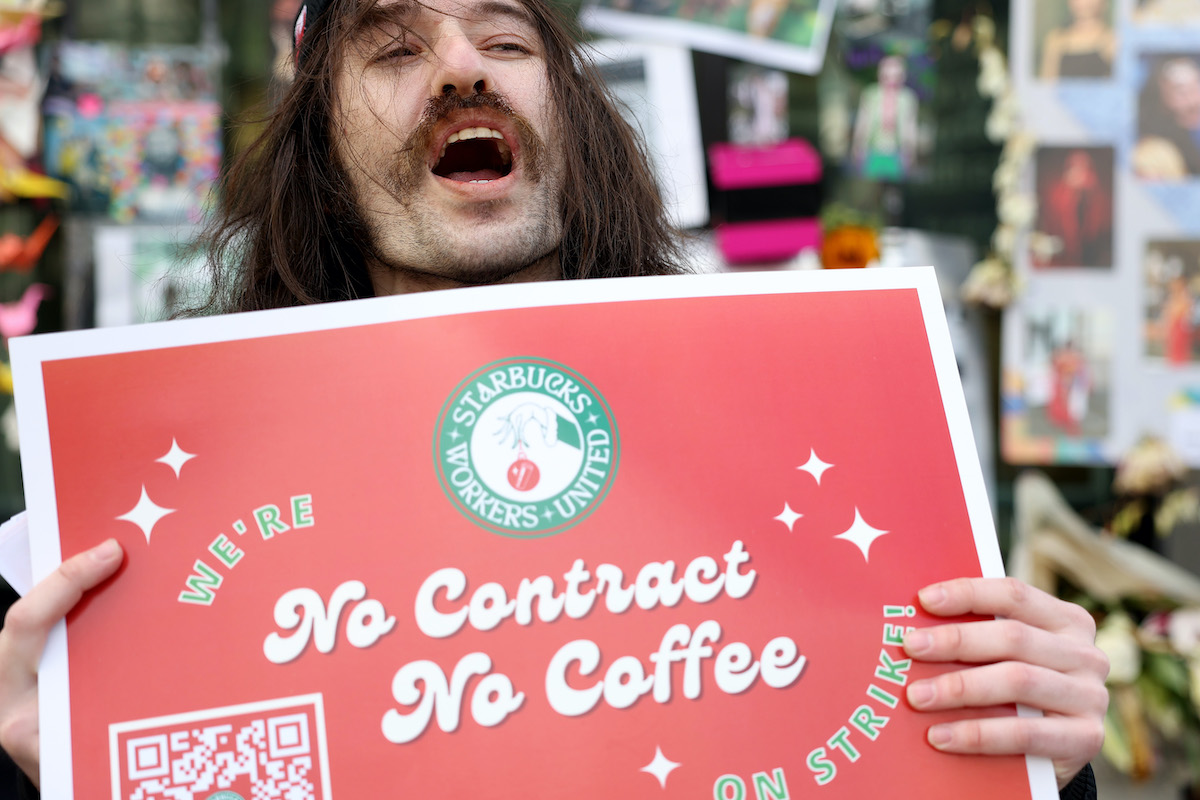The scene outside of the Starbucks headquarters in Seattle, Washington last Wednesday was anything but mellow and jazzy, as the coffee mega giant’s signature in-store playlists tend to strive to be. Workers from over 100 stores nationwide walked out in protest, and droves of striking employees from multiple Starbucks locations gathered to demonstrate outside the site of the company’s annual shareholder meeting in the hopes of gaining attention for their anger over Starbucks’ recent efforts toward what could be called some pretty aggressive union busting.
“As Starbucks celebrates [its] provenance and record profits this week, my partners have to deal with the reality that we are being nickel-and-dimed to extract as much labor as cheaply as possible,” Maria Flores, a barista in Queens, New York told The Guardian.
Back in December of 2021 Baristas in a Buffalo, New York location successfully formed the first-ever unionized Starbucks store in the United States. Since then, more than 7,500 workers in almost 300 other locations have voted to unionize under the larger group called Starbucks Workers United. However, the rate of stores unionizing has slowed way down since Starbucks went ahead and started allegedly firing pro-union employees and allegedly shutting down unionized stores, according to reporting from Slate.
This past spring, the former Starbucks CEO, Howard Schultz, actually said he would give non-union employees raises, but would not raise pay for union employees. Apparently, he argued that federal law “prohibits us from promising new wages and benefits at stores involved in union organizing.” And if you think that sounds illegal, you’re not alone. The National Labors Board, for instance, has accused Starbucks of illegally discriminating and retaliating against workers at its unionized stores.
It sounds like the company’s brand-new CEO Laxman Narasimhan avoided talking about the strike and labor issues in general during the shareholder meeting. According to The Guardian, Starbucks workers had wanted “shareholders to vote to approve a resolution for a third-party assessment of the company’s commitment to workers’ rights, arguing Starbucks is violating its own commitments in its global human rights statement on collective bargaining rights and non-interference.”
Although, CNBC notes that “Shareholder votes aren’t binding, so the board can reject proposals even if a majority of investors vote in favor.”
This coming Wednesday, a week out from the protest, Schultz is scheduled to testify before the US Senate health, education, labor, and pensions (Help) committee about Starbucks’ union-busting actions. I hope the major players for the people on the committee, like Bernie Sanders, for example, really effing hand his ass to him.
(featured image: Justin Sullivan/Getty Images)









Published: Mar 27, 2023 02:19 pm